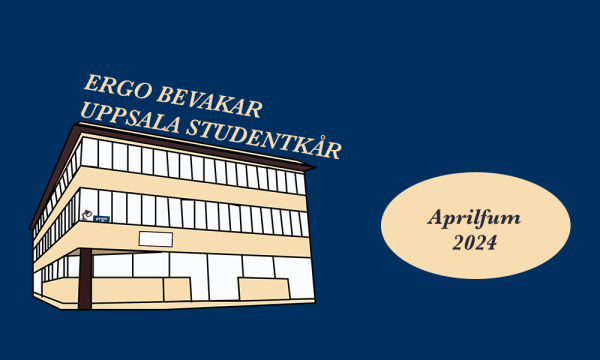
Making Sustainability Sexier
It is a little bit difficult to completely grasp what the concept “sustainable sex” actually entails. Several question marks are raised when I ask for an explanation. But that might, in itself, be explained by the fact that the concept has not really existed until now.
– Sex is something that has not really been approached in relation to sustainable development before. There is a lot of taboo surrounding sex and talking about it in relation to sustainable development might be an alternative way to loosen that up, says Harriet Dunn, who is one of the initiators behind The Green Sex Festival that will be arranged at Kalmar nation 19 May.
The festival is arranged as a project for the course Sustainable development – project management and communication, which Harriet Dunn is studying, together with the other festival arrangers – Marie Hägele, Rebecca Hurst, Gillian McDonald and Fanny Wahlqvist. Kondoma mera (see fact box) is also a part of the arrangements.
But let us get back to the main subject of the festival:
What is “green sex”?
– Conscious consumerism is a big part of it – using, for example, environmentally friendly condoms and being aware of what contraceptive pills do to your body and the environment. But it’s not purely environmental, it’s also social. How we think in relation to sexual-political issues and how we behave in close relationships with each other, says Rebecca Hurst.
Anneli Landsten, who is in charge of Kondoma mera, chimes in:
– I think the impact that people’s sex life have on the environment is something we’ve bundled off into the dark and avoid talking about. Manufacturing condoms, for example, is a huge industry where the production and global transportation affects the environment. Also, it’s important to discuss what kind of bearing the material in condoms, sex toys and birth control pills have on our bodies. A lot of research has been made on what impact the material of kids’ toys have on the environment and people’s bodies, but not sex toys, which is odd since it’s something we use so intimately. And we, the people behind the festival, don’t know the answers to all of this, which is one of the reasons we arrange it.
The aim, according to the arrangers, is to increase people’s awareness regarding these subjects in a new exciting way, and to encourage people to think more critically. However, I can not help but wonder if the environmental awareness they want to raise through the festival might contribute to creating more shame around the subject of sex, which is already, for a lot of people, so closely associated with shame.
On the subject of birth control pills for example, many young women might feel pressured into taking them for the sake of their relationship, and if they then get to hear that it’s bad for the environment, might that not make them feel as though they make the wrong decision whether they take the pill or not?
– We don’t want to guilt anyone into anything. We want to educate people so they can make their own opinions in these questions. It’s not about telling people what to do, but rather give them an option, Marie Hägele explains.
The festival will begin in the afternoon with fika, panel discussions, and book tables and end in the evening on a more informal note with themed cocktails and a pub quiz for those with a nation card.
But for those who will not be able to attend the festival, might the group have some suggestions as to what small changes you can do in your own life to make your sex life more sustainable?
– My main tip would be to just take a look at the products you pick up at the store before you buy them. Don’t always go for the cheapest or best looking product – look at how it has been produced and what it actually contains. It’s an easy way to increase your awareness and it’s a gateway to a more sustainable living overall, says Harriet Dunn.
Anneli Landsten agrees:
– You should also remember to recycle the batteries from your sex toys if you use any, and buy fair trade condoms, you could use a menstrual cup rather than tampons, and so on. But if you would ever have to choose, of course it’s more important to protect yourself, rather than choosing not to because the protection you have available is not environmentally friendly. Also keep in mind that not everything works for everyone, so you will have to explore your options and find what works best for you.
– Do what’s good for you, your partner and the environment, Marie Hägele ends.
Kondoma Mera
Kondoma Mera is a collaborative project that was launched in 2002 by Uppsala student union and Kuratorskonventet (the cooperative organisation for the student nations) with the aim of reducing sexually transmitted diseases and unwanted pregnancies. Today Kondoma Mera is a permanent organisation that can sometimes be seen around campus handing out condoms and informing students about questions conserning sexuality and health.
















